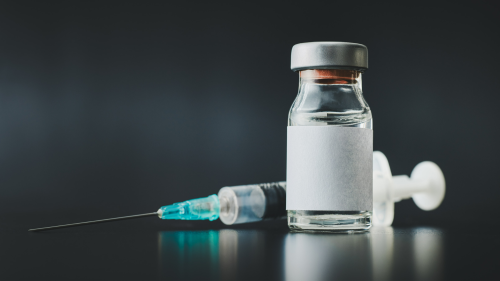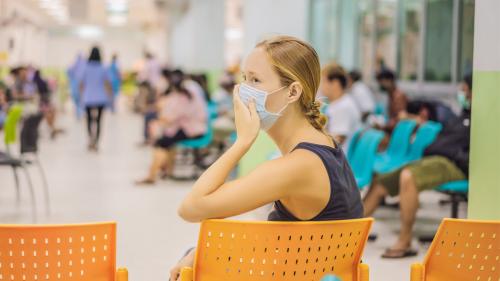
-
Understanding primary immunodeficiency (PI)

Understanding PI
The more you understand about primary immunodeficiency (PI), the better you can live with the disease or support others in your life with PI. Learn more about PI, including the various diagnoses and treatment options.
-
Living with PI
-
Addressing mental health
-
Explaining your diagnosis
- General care
- Get support
- For parents and guardians
-
Managing workplace issues
- Navigating insurance
-
Traveling safely

Living with PI
Living with primary immunodeficiency (PI) can be challenging, but you’re not alone—many people with PI lead full and active lives. With the right support and resources, you can, too.
-
Addressing mental health
-
Get involved

Get involved
Be a hero for those with PI. Change lives by promoting primary immunodeficiency (PI) awareness and taking action in your community through advocacy, donating, volunteering, or fundraising.
-
Advancing research and clinical care
-
Research Grant Program
-
Consulting immunologist
-
Diagnosing PI
-
Getting prior authorization
-
Clinician education
-
Survey research
-
Participating in clinical trials

Advancing research and clinical care
Whether you’re a clinician, researcher, or an individual with primary immunodeficiency (PI), IDF has resources to help you advance the field. Get details on surveys, grants, and clinical trials.
-
Research Grant Program
In March 2020, the pandemic unleashed its full fury on the global population. SARS-CoV-2 rapidly made its way from country to country, region to region. Scientists had little idea of exactly how it was spread, what the full health effects would be, and how many would perish as a result.
“A year ago, I was ready to batten down the hatches, as I’m sure all of you were too. I thought that this would just be a disaster for people who live with PI every day,” said Dr. Kathleen Sullivan in a recent IDF forum, “COVID-19: Where are we now? Where are we headed?” “However, the risks of severe disease and death are not markedly increased in people with PI – that’s the great news.”
Dr. Sullivan, Chief of Allergy and Immunology at Children’s Hospital of Philadelphia, and Dr. Maria Jimena Gutierrez, Assistant Professor of Pediatrics at Johns Hopkins Medicine specializing in allergy and immunology, discussed a variety of topics, including COVID-19 statistics, studies on how the virus affects those with PI, vaccines, virus variants, and the current state of the pandemic.
The U.S. is the leader in COVID-19 cases and deaths, said Dr. Sullivan, with over 28 million cases and over 500,000 deaths. Worldwide, the virus has infected over 100 million people and killed over 2 million.
“It has been a year full of tragedy. There have been some positives that have come out of it, but I can’t say that anyone would want to redo this year if they had the choice,” said Dr. Sullivan.
Perhaps one positive is that the PI population is doing “surprisingly well,” said Dr. Sullivan. According to an amalgamation of international studies, mortality rates are overall comparable to those without a PI. Another study found that the biggest predictors of death from COVID-19 – age and lung disease – were the same for the general population as those with PI.
“The big picture message that having a PI is not a very severe risk factor for doing badly with COVID-19,” she said.
Furthermore, studies showed that having an immune dysregulation, an autoinflammatory disease, or a T cell immune deficiency, or taking an immune modulator does not increase the risk of death.
“This is a huge surprise. No one would have predicted this a year ago,” said Dr. Sullivan.
The majority of persons with PI should get the vaccine, advised Dr. Sullivan, but only after checking with their immunologist. Most types of PI produce a normal antibody response to the vaccine. Even those with antibody deficiencies should benefit from a slight antibody response or a T cell response, mitigating the severity of the disease.
Vaccines available in the United States include Moderna, Pfizer, and Johnson & Johnson, explained Dr. Gutierrez. None of these vaccines contain live COVID-19 virus, and trials showed they are very effective and safe — each vaccine trial involved over 30,000 people from diverse races, countries, ages, and medical conditions.
The Moderna vaccine is administered in two doses, 28 days apart; the Pfizer vaccine is administered in two doses, 21 days apart; and the Johnson & Johnson vaccine is administered in one dose.
Dr. Gutierrez described the vaccines’ effectiveness levels and side effects:
Moderna
- 94 percent effective at preventing symptomatic COVID
- 100 percent effective at preventing severe COVID
- 80 percent of recipients had a fever, headache, fatigue
Pfizer
- 95 percent effective at preventing symptomatic COVID
- 88 percent effective at preventing severe COVID
- 60 percent of recipients had fatigue; 50 percent had a headache; 40 percent had muscle pain
Johnson & Johnson
- 66 percent effective at preventing moderate to severe COVID
- 85 percent effective at preventing severe disease
- 9 percent of recipients had a fever
If you develop any of the expected vaccine side effects, Dr. Sullivan said it’s fine to take Tylenol or Motrin after getting the vaccine; just don’t take them before getting the shots. In fact, if you have brief, flu-like symptoms, it means your immune system is working to build the response it needs to fight the virus. It does not mean you have the infection.
Dr. Sullivan also recommended that persons with PI reach out to their immunologist for emerging information about monoclonal antibody treatment, should they contract the virus.
She also shared that current vaccine trials with children and teens ages 12 to 18 are taking place now and that vaccines for that age group could be available by the summer.
While there’s a ray of hope proved by the vaccines and the treatments, there’s also cause for concern because of new variants of the continually developing virus. Some of these variants cause the virus to be as much as 50 percent more contagious. A more significant concern is that the variants will mutate to break through the vaccines’ immune barriers.
The new variants sometimes can re-infect those who’ve had the virus once unless they’re protected by the vaccine.
“We’re in a bit of a race: immunity versus variant emergence. The idea is these variants are sort of gaining ground; they’re catching up. Immunity had a head start because of natural infection and vaccines. Now there is a race.” said Dr. Sullivan.
“But we need to outrun the variants because the variants have an increased capacity to escape antibodies engendered by vaccinations.”
Amidst the unpredictability of the virus, some are calling for re-opening and a return to normalcy, while others are worried about the variants. The truth is, no one knows the trajectory of the virus.
“It’s impossible to predict. Looking at Manaus, Brazil, looking at England, it’s clear that the variants can rapidly outstrip the previous strain of the virus, so this is just a really delicate time, and I think it’s dangerous to try and predict the future,” said Dr. Sullivan.
“That’s why you hear people saying ‘You still need masks, you still need social distancing, you still need handwashing,’ and we need more vaccine – more vaccine for everyone,’’ said Dr. Sullivan.
As we all wait to see how the virus plays out, members of the PI community should consider participating in future IDF surveys related to COVID-19. A recent COVID-19 survey yielded 2,200 respondents who answered questions about healthcare and medicine access and teased out nuances about susceptibility within the PI community.
“If you are asked, please contribute… That information is gold. It’s really useful,” said Dr. Sullivan.
Dr. Sullivan ended the presentation with a reminder to ward off anxiety and depression by maintaining relationships with others.
“I do think we have to be cognizant that we are more than just an infection risk. We are whole living human beings that have lots of needs, and we are social animals. We need connection, so please take care of all of yourself,” she said.
“The infection is hugely important. I don’t want to diminish it, but I do understand more powerfully than I did a year ago how important it is to maintain those connections and to really think about wellness in a holistic way.”
To listen to the entire presentation, click here.
Related resources

Foundation provides guidance amid changing vaccine recommendations

Foundation to follow medical societies' vaccine schedules in light of ACIP hepatitis B decision

Preparedness key when visiting emergency department with PI
Sign up for updates from IDF
Receive news and helpful resources to your cell phone or inbox. You can change or cancel your subscription at any time.





The Immune Deficiency Foundation improves the diagnosis, treatment, and quality of life for every person affected by primary immunodeficiency.
We foster a community that is connected, engaged, and empowered through advocacy, education, and research.
Combined Charity Campaign | CFC# 66309

